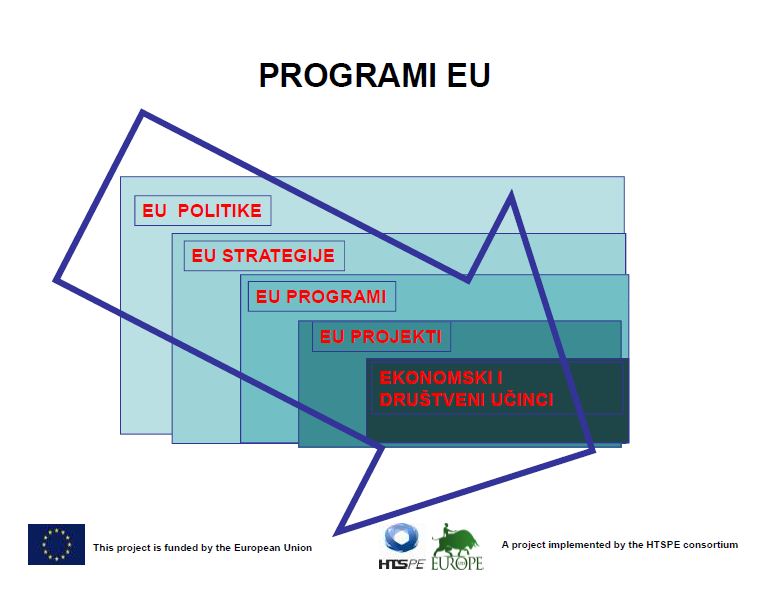
Directorate for European Integration of BiH Council of Ministers, in co-operation with the EU-funded project " Capacity Building of Government Institutions to engage in policy dialogue with civil society in BiH" and "Support to participation of Bosnia and Herzegovina in the new 2014-2020 Cycle of EU Programmes“ organized a seminar in Sarajevo today at which they presented the background information, objectives and activities of individual EU programs for 2014-2020.
Bosnia and Herzegovina has been opened the possibility of participation in EU programs with implementing the foreseen procedures designed to support BiH on its path towards European integration.
"The civil society will learn in the seminar more about what the European Union has to offer through EU programs. This is a good opportunity for them in terms of achieving cooperation," Natalia Dianiskova, head of operations for the development of the social sector, civil society and cross-border cooperation at the EU Delegation, told the Fena Agency.
If BiH chooses one of a dozen projects, the state must pay an “entry ticket”, says Dianiskova.
Funds that are paid by the country for the “entry ticket” do not guarantee financing of the submitted project proposals, however the approved projects may withdraw funds that are much higher than the amount paid for the “entry ticket“.
Talking about the rules for participation in EU programs for 2014-2020, Andrei Szuder, one of the experts in EU programs for 2014-2020, singled out the Horizon 2020 as one of the most important programs that deal with research and innovation.
"This is a program that covers part of the Competitiveness and Innovation Programme (CIP) and has a lot of priorities concerning the current challenges of the European society. The Programme includes a variety of fields such as healthcare, nanotechnology, space, social science, which is new in this the program. Also, there are different types of research," says Szuder, adding that applications for these projects willl be simplified.
Along with ERASMUS and COSME, the Horizon 2020 has the biggest budget in the amount of 70.2 billion euros.
"The main idea of the Erasmus + programme in all European countries is to establish a centralized agency that would deal with all the activities in the framework of the Erasmus +. This program has become a common program that deals with youth that is involved in programs that are tied to education, training and sport," said Szuder.
Many countries participate in this program, including the countries of Africa and South America, and a special activity within the EU cooperation is in the field of sports.
"BiH has had very good results in the Tempus project. I think that biH can achieve even more because it had a very good experience in the Tempus project," Szuder confirmed.
Zara Halilović, Assistant Director of the Directorate for European Integration said that the situation in BiH was much better with the programs of the European Union than what was the case with the pre-accession assistance (IPA).
"I hope that in the future we will be successful in the use of EU programs 2014-2020, several of which we are already using. Bosnia and Herzegovina is a country of successful individuals and organizations so that EU programs are very good for the country," Halilović concluded.
The purpose of participation in the programs, including Creative Europe, Europe for Citizens, LIFE, Employment and Social Innovation, Health for Growth, Rights and Citizenship, is the introduction of policies and strategies of the European Union in certain sectors through the implementation of projects.
"Regardless of the fact that Bosnia and Herzegovina is not a member of the EU, thanks to the participation in these programs, the civil society leads the country into the membership and it becomes part of a single area of the European Union," emphasized Halilović.
Projects supported within the EU programmes usually demand participation of more partners from various countries – members of the programmes, as well as co-financing of the projects by the applicants themselves. The participation of stakeholders in the EU programmes offers the possibility for the exchange of knowledge and experiences, good practices, participation in pilot projects, preparation of the strategic documents and sector policies, participation at the seminars, workshops and study trips, etc.
Usually, the EU programmes foresee the establishment of a national contact point for a programme in the participating country, for the purpose of offering information on a programme and giving support to the applicants, as well as improving participation of the country in the programme of interest.
In the previous period 2007-2013, Bosnia and Herzegovina participated as a member in the following EU programmes: Seventh Framework Programme for Research, Technological Development and Demonstration Activities (FP7), Culture, Media and Europe for Citizens.
One of the important aspects of development of incentive environment for the civil society functioning is enabling them participation in development of sustainable policies which will completely reflect the needs of the citizens. This is particularly needed for the reforms which need to be implemented by country aspiring to become EU member.
The European Union expects from the beneficiary countries to set up appropriate structures and mechanisms for cooperation of the public institutions with the civil society, as well as free, clear and accessible flow of information related to the matters of public interest. When implementing tasks from its scope of competence, the Directorate for European Integration i.e the Office of the National IPA Coordinator, besides information exchange and consultation with all partners from the BiH authorities, other donors and international financial institutions, puts efforts in further development of the level of the participation and consultation mechanisms with the civil society in BiH.
